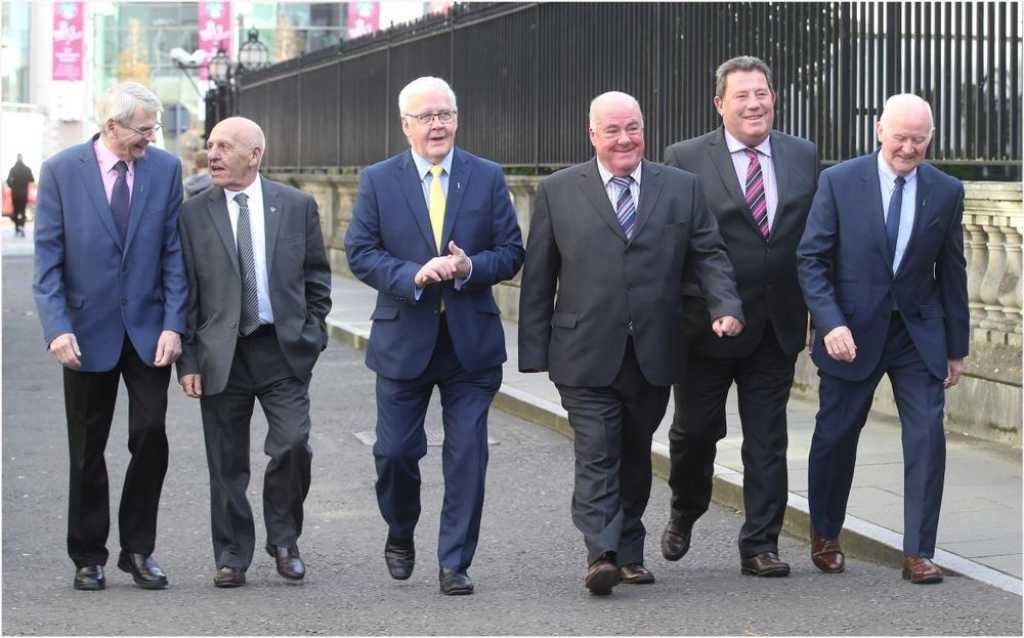European court rules “Hooded Men” were not tortured
Posted By: March 20, 2018
 Liam Shannon, Francis McGuigan, Jim Auld Joe Clarke, Kevin Hannaway, and Brian Turley. Some of the Hooded men on the way out of the High Court in Belfast after an earlier hearing. Picture by Hugh Russell.
Liam Shannon, Francis McGuigan, Jim Auld Joe Clarke, Kevin Hannaway, and Brian Turley. Some of the Hooded men on the way out of the High Court in Belfast after an earlier hearing. Picture by Hugh Russell.
Irish News. Belfast. Tuesday, March 20, 2018
The European Court of Human Rights has rejected a request by the Republic to find that people detained by the UK during the Troubles in the so-called Hooded Men case suffered torture.
The Dublin government took legal action following new evidence and amid pressure from Amnesty International and other human rights organizations over the so-called Hooded Men case.
They were 14 Catholics interned – detained indefinitely without trial – in 1971 who said they were subjected to a number of torture methods.
These included five techniques – hooding, stress positions, white noise, sleep deprivation and deprivation of food and water – along with beatings and death threats.
The men were hooded and flown by helicopter to a secret location, later revealed as a British Army camp at Ballykelly, outside Derry.
They were also dangled out of the helicopter and told they were high in the air, although they were close to the ground.
None were ever convicted of wrongdoing.
A statement from the court said: “The European Court of Human Rights has rejected a request by Ireland to revise a 1978 judgment and find that men detained by the United Kingdom during Northern Ireland’s civil strife suffered torture, not just inhuman and degrading treatment.”
It added: “The court found that the Government of Ireland had not demonstrated the existence of facts that were unknown to the court at the time or which would have had a decisive influence on the original judgment. There was, therefore, no justification to revise the judgment.”
The revision request was dismissed by six votes to one. The judge elected by Ireland issued a dissenting opinion.
The Dublin government first took a human rights case against Britain over the alleged torture in 1971.
The European Commission ruled that the mistreatment of the men was torture, but in 1978 the European Court of Human Rights held that the men suffered inhumane and degrading treatment that was not torture.
The British government did not dispute the finding.
New evidence, uncovered from national archives in London, throws doubt over the ruling by the European Court of Human Rights.
It includes a letter dated 1977 from then-home secretary Merlyn Rees to then-prime minister James Callaghan in which he states his view that the decision to use “methods of torture in Northern Ireland in 1971/72 was taken by ministers – in particular, Lord Carrington, then secretary of state for defense”.
Mr. Rees added that “a political decision was taken.”










